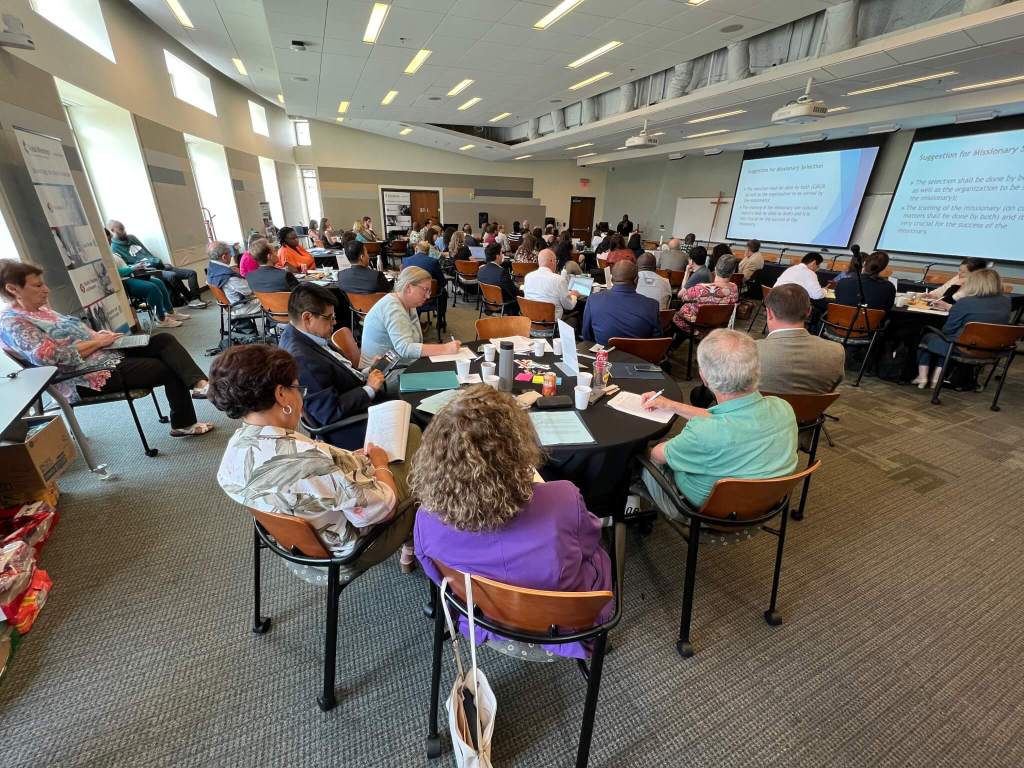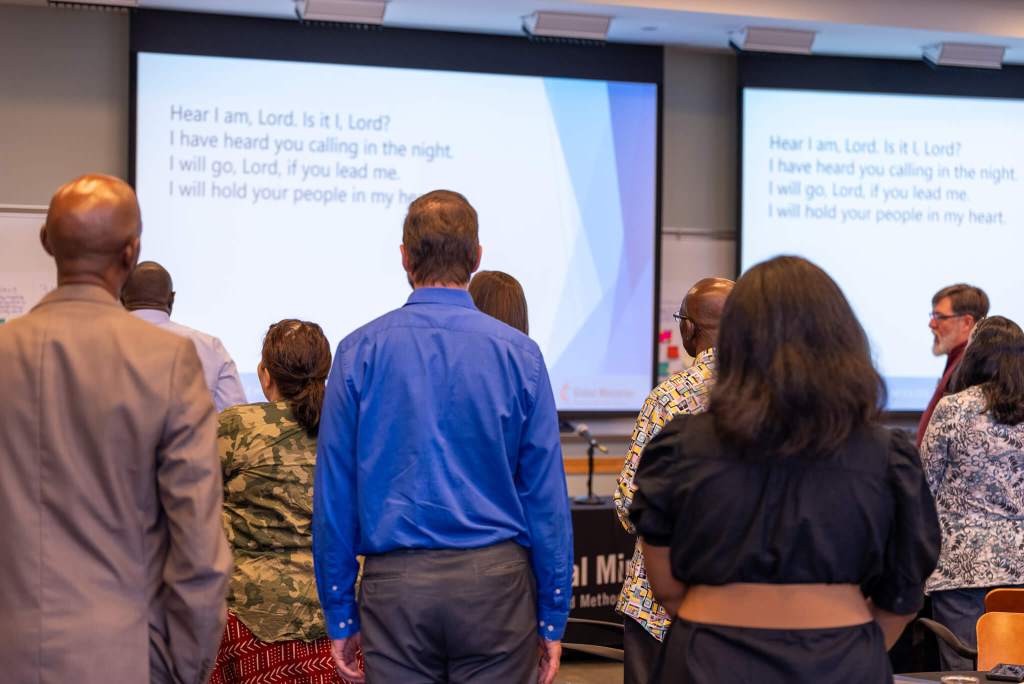
ATLANTA
“Go.” From the time of the early church, this short imperative has shaped Christianity’s understanding of mission.
It is a central part of the Great Commission in the Gospel of Matthew: “And Jesus came and said to them, ‘All authority in heaven and on earth has been given to me. Go therefore and make disciples of all nations, baptizing them in the name of the Father and of the Son and of the Holy Spirit and teaching them to obey everything that I have commanded you. And remember, I am with you always, to the end of the age.’”
For centuries, the theological understanding and practice of “going” has influenced missionaries’ sense of calling as well as where and how they serve. Through Global Ministries, The United Methodist Church commissions and sends missionaries into service. Currently, more than 200 missionaries are placed in over 60 countries.
In the “Guiding Principles of Missionary Service” consultation held at Emory University’s Candler School of Theology in Atlanta, Ga., on Aug. 1-3, Global Ministries convened a group of missionaries, mission staff, board members and ecumenical partners to reexamine and renew its practices of missionary sending. The agency’s current set of guiding principles were established in 2012 at a gathering at Drew University in New Jersey.

This August gathering was the second of three critical consultations about the future of mission being convened in 2023. The first was held in Mozambique in April with African United Methodist mission partners and, in November, Global Ministries will convene a third consultation with U.S. mission partners.
In his opening remarks, General Secretary Roland Fernandes framed the purpose of the consultation in this way: “The centrality of missionaries in God’s mission cannot be overlooked, and yet, what missionary service should look like needs to be discerned anew in each new era.”
In a time that is bringing much change within our world and denomination, Fernandes stressed the importance of guiding principles that are grounded in and guided by a theology of mission. Specifically, a theology that embraces and embodies the claim that the Spirit of God is always “sweeping us into a new mission age.”
To that end, panel discussions and small groups facilitated conversation on topics like the historical and contemporary role of mission sending agencies and the intercultural and incarnational nature of missionary work. In a posture of curiosity and respect, the dialogue among presenters and participants both affirmed and challenged current guiding principles.

The Rev. Dr. Robert Hunt, professor of Christian Mission and Interreligious Relations at Southern Methodist University’s Perkins School of Theology and former Global Ministries missionary, delivered a talk in which he claimed that the full scope of God’s saving work in the world can only be understood and achieved interculturally. God is seen, experienced and known through diversity and difference. And yet, he also named the importance of continuing to challenge the colonialist model of mission as “taking the gospel” to new places and new people. “The gospel does not travel,” Hunt claimed, “It emerges.” And the role of missionaries is to help it flourish where it already exists.
In the sharing of personal experiences, unique perspectives and innovative ideas, healthy tensions and questions emerged. How do we think and act more global in nature? How do we increase cultural awareness? How do we fully live into mutuality in mission? What does it look like to go; be sent; serve?
And this was the goal: To begin discerning where God is leading the church anew in the area of sending missionaries into service. In this era; in this mission age.
In worship together, the gathered group sang this familiar verse by Dan Schutte:
Here I am, Lord. Is it I, Lord?
I have heard you calling in the night.
I will go, Lord. If you lead me.
I will hold your people in my heart.

Whether missionaries go across the street to welcome a new neighbor or go across an ocean to be shaped by a new culture, they will continue to ask questions, listen and “go” at the leading of the Holy Spirit.
Sara Logeman is the content strategist for Global Ministries and UMCOR.
Global Missionaries
Global Ministries missionaries are a tangible connection between The United Methodist Church and mission. Through denominational or ecumenical ministries, missionaries bear witness to God’s presence all around the world. They are called by God and sent out to serve by the church, usually placed in a new cultural context beyond their country of origin. Missionaries engage in ministry that is defined by mutuality and partnership, seeking to expand the mission of God already present and active in people and places.
Support the ministries of missionaries working around the world, Advance #00779Z.

